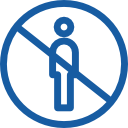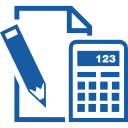I have received court papers, what do I do?

So, you have tried to ignore the debt and hoped it would go away – you aren’t the first and won’t be the last. Unfortunately, it has gotten to the stage where we have had no other option but to pursue the outstanding balance through the court and you have received the court papers in the post.


What results from the court action?
If the court finds in our favour or you do not respond, a CCJ will be obtained against you. This is a County Court Judgement. It is marked on your credit file and remains there for 6 years. This makes it more difficult to obtain further credit and can impact other things such as whether an employer would consider you for a job; as well as whether a landlord would consider you as a tenant.
Further to this, if you have received the CCJ and have not set a payment plan, we can look to enforce the Judgement. We can do this by applying for an Attachment of Earnings order where the court will instruct your employer to deduct it directly from you wage; or employing the services of Enforcement Officers who will visit your property which could result in goods being ceased to be sold to pay off the debt.


What can I do?
We understand that this can come as a nasty shock and it might leave you feeling like that’s that – you can’t avoid getting a CCJ now so what’s the point in addressing it at this stage?
This is not the case. You do still have options and there are reasons to address the problem at this stage. This blog will detail what happens and what you can do along the way.


The court papers arrive:
This means that we have processed a claim against you for the outstanding balance through the court. The court fee will have been added to your balance. The court papers give you the opportunity to admit the claim and make an offer of repayment or to defend the claim if you believe you have a genuine reason that you do not owe the money.
Defending the claim:
If you defend the claim, please be aware that we have records of all conversations and communication – so unless there is a genuine dispute please don’t invent one as it will be easily disproven. Any dispute should have been raised with us previously and we should have been given
the opportunity to rectify it for you.


That’s not to say that some people don’t have a genuine dispute. If this is the case for you – you can still contact us to discuss this before sending the defence back to the court. We can discuss this with you and attempt to come to an arrangement before continuing down the legal route. This is beneficial because it can mean that you can still possibly avoid receiving a CCJ.
If you would prefer to send your defence straight to the court, you can of course. We would then submit our evidence and the court would ultimately make a decision. Please note that this will incur further court fees which would be added to your balance should we win the case.


Admitting the claim:
You can admit that the money is owed (the court fee will be included in your balance). You can then offer payment in full or offer a repayment plan.
Once we receive the admission, we will need to contact you to arrange payment, so it is important that you include up to date contact details for us to get hold of you.
If you pay the balance in full, we will discontinue the court action and you will not receive a CCJ.


If you want to set a payment plan, you will still receive a CCJ by admission. Whilst the CCJ remains on your credit file for 6 years, once the balance has been paid, it will be marked as satisfied. This shows other potential lenders that whilst you did have a CCJ, you didn’t ignore it – you took action and paid it off. This shows you in a more favourable light and reflects better on your credit file.
Other options:
There are a few other options available to you.

Call Us:
When you receive the court papers, call us straight away. We can discuss your case and see what the best way forward is for you personally. We will do our best to find the most suitable outcome with you.
Pay in full:
As previously mentioned, if you pay the balance in full the claim will be discontinued and the account closed. You will not receive a CCJ for this claim. The best way to do this so we do not proceed is to call us. This is due to time limits. If we haven’t heard from you and the date to request the CCJ comes, we will assume you are unwilling to contact us and apply for it. You can send the
admission back of course, but you are relying on the post getting to us within the time frame.


Pay over 3 months:
If you cannot manage to make the payment in full but feel very strongly that you do not want a CCJ, you can call us and arrange to pay the balance over 3 months. The agreement would have to be stuck to as if a payment is missed we will apply for the CCJ.
Consent Order:
If you cannot afford to pay in full or to pay over 3 months, but are still very keen to avoid the CCJ, you can call us to discuss the possibility of a Consent Order. This is where we draw up an agreement between you and us that you will pay an agreed amount on an agreed date. This agreement is then sent to the court and they approve it. They will then hold the CCJ process. Once the balance is paid, the action is stopped.


Again, it is very important that you stick to the terms of the Consent Order as it states that as soon as you default on the arrangement we are at liberty to request the CCJ.
The Consent Order is charged for by the court. This fee would be added to your balance, so whilst it can be a good way to come to an agreement, it does increase the overall payment due.


Remember:
- It’s never too late to deal with the problem
- It will be detrimental to you to ignore a CCJ
- We will do our best to work with you to get the best outcome
- We are a friendly team and won’t judge you
You can speak to us on 0333 212 3914 or email us on support@payitmonthly.uk if you would like us to call you.

